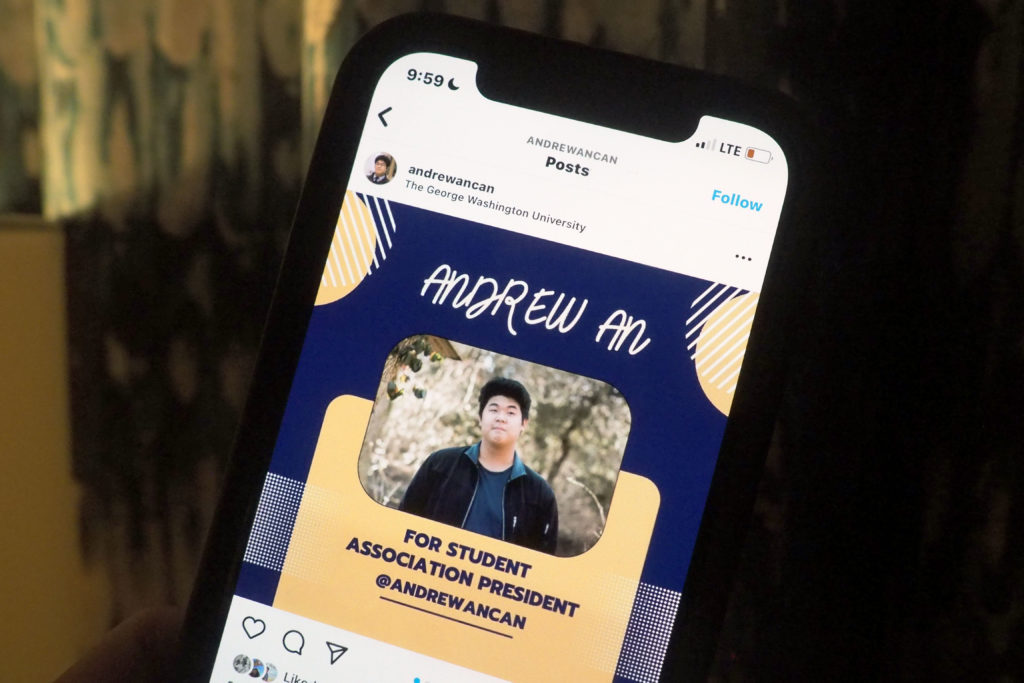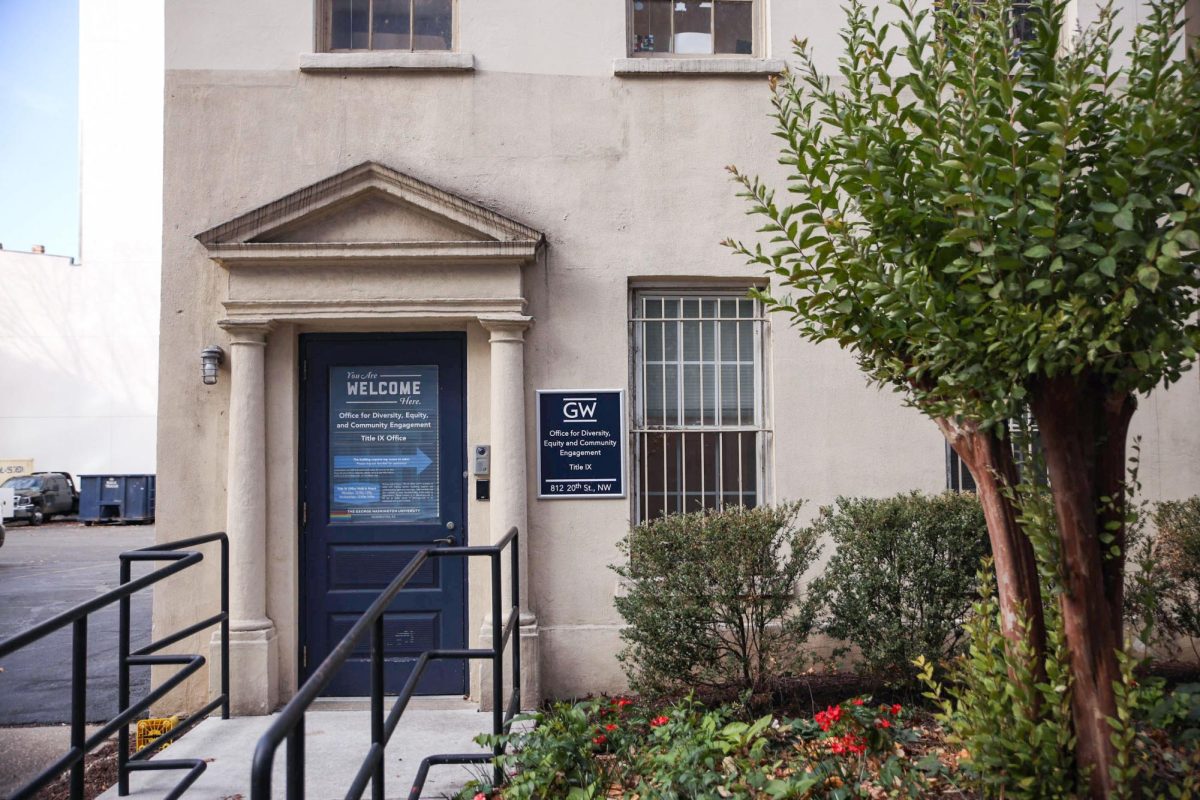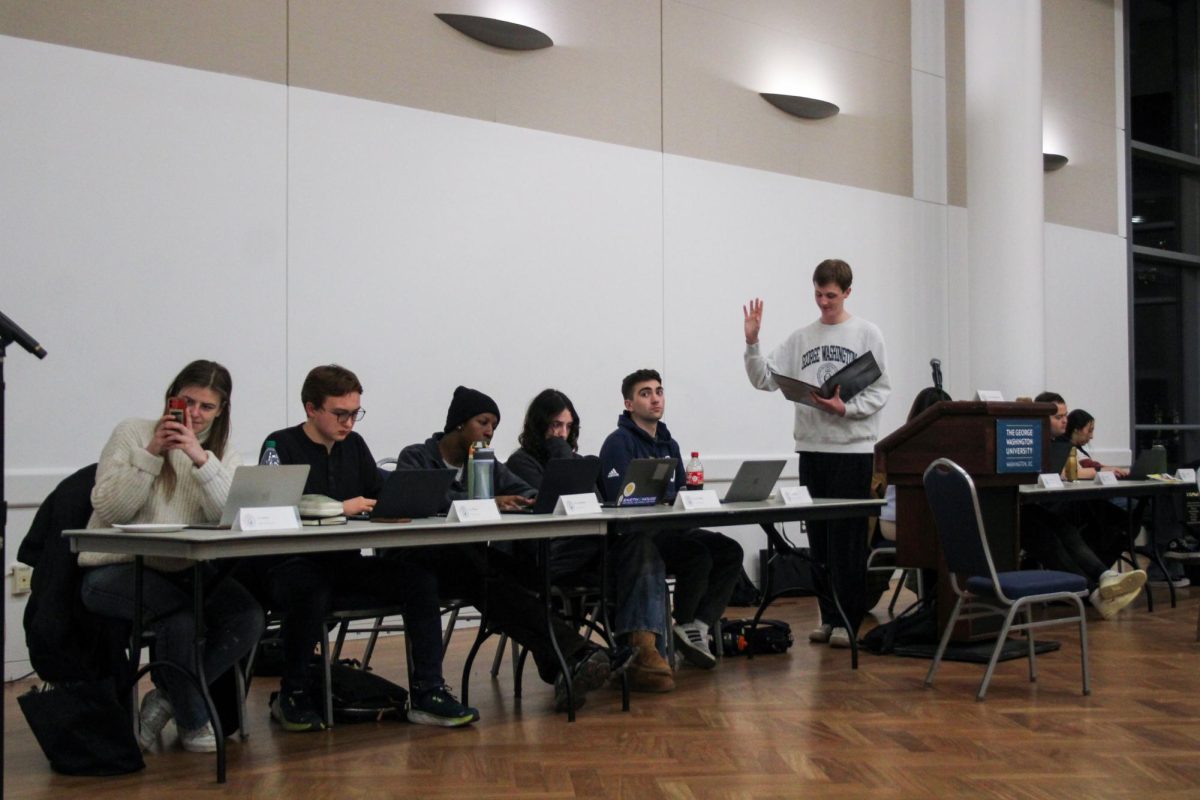A sophomore launched a last-minute write-in campaign for the Student Association presidency Tuesday just before voting opened for students.
Andrew An, an international affairs major and a student staff photographer for GW, posted a campaign announcement on Instagram with 10 slides outlining his platform for the SA’s top post, including his intent to collaborate with the Title IX Office and to work with Facilities Planning, Construction and Management to get updates on residence hall safety. He said in his post that he wants to provide a voting alternative to individuals who are angered by “scandals” and “toxicity” within the SA.
“I understand that this is a last-minute effort,” An said. “I do not expect to win.”
But An added that he hopes to force issues like campus safety into the campaign and demonstrate a candidate can run without resorting to “gossip.” An declined to say what specific scandals or instances of infighting within the SA he was referring to in the announcement.
“In light of recent events, if you feel disenfranchised or unsure, I would like to offer myself as a potential alternative to remedy the uncertainty,” An wrote in the post, which had roughly 400 likes as of Tuesday evening.
Some members of the GW community have raised criticisms of this year’s SA campaign. Junior Juan Carlos Mora, an SA assistant legislator general, tweeted Monday that some SA candidates who have “mismanaged” the SA are using “smear” tactics against their opponents.
“You guys were so close to not having an unnecessarily dramatic SA election,” GW College Republicans Chairman Patrick Burland tweeted.
An received an endorsement from an anonymous Instagram satire account, “gwheadlines,” which frequently posts anonymous messages on its Instagram story targeting members of the SA and candidates who have stepped into the election.
One of the accounts’ most frequent targets has been SA Vice President Kate Carpenter. Carpenter had planned to run for the presidency this year but ultimately chose not to do so as a result of online attacks, which she said constituted cyberbullying.
Carpenter and at least two other students targeted by the account received a letter from the Office of Students Rights and Responsibilities in December stating that a report led officials to believe they may have been harmed by an Instagram page targeting members of the GW community.
“As for cyber bullying, our page believes in criticism that reflects her behavior and policies,” the gwheadlines account said in an Instagram message last month.
An said if elected, he will donate $3,000 of the SA president’s scholarship to a food pantry, student organizations or charity, according to his post. The Office of Financial Assistance awarded the SA president and vice president each $11,250 for the current academic year, which is applied to tuition and mandatory University fees only, University spokesperson Crystal Nosal said in an email in November.
An said he would create a new student organization to oversee the SA to “review” Student Court cases, legislation and internal affairs. He said the SA’s Student Accountability Mechanism – a committee that was launched last year for student leaders independent of the SA to advise the body – is not enough and needs to be “independent.”
Carpenter spearheaded the committee at the start of the academic year, which meets once or twice a month to discuss how to hold SA members accountable and ongoing work and initiatives within the SA.
An said in his post that student organizations should move to a block grant system as opposed to current procedures, which require organizations to submit specific line items for funding requests.
Under current procedures, the SA finance committee assigns one of three priority levels for each funding request. But An said that responsibility should be shifted to student organizations to provide them with more “freedom” over their funding, saying the committee has sometimes sidelined more essential requests while green-lighting others.
“The process of funding is less democratized than it was a year ago because our current finance bylaws and legislation concentrate power in the hands of a few,” An said in his announcement post.
A shift to block grants would necessitate changes to the Code of Financial Policies, which would require two-thirds of the senate’s approval.








